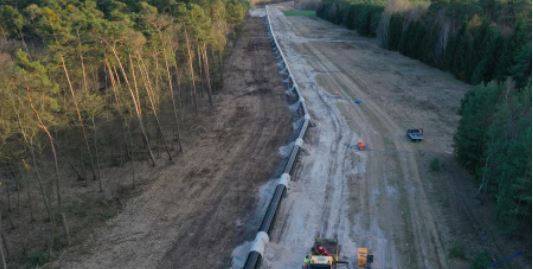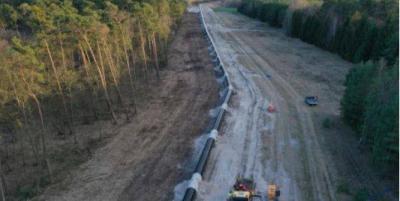After years of warnings about the dangers of nuclear power plants, Europe is turning to them as one of its main energy supplies for the future. This shift comes following the official decision by Russian President Vladimir Putin last Thursday to sell Russian gas in rubles, coinciding with a significant surge in energy prices. European countries importing gas argue that this decision violates existing contracts between the parties, while Moscow considers it an appropriate response to economic sanctions imposed by Europe due to the Ukraine crisis.
The UK is set to announce plans this week to expand its energy sources, as the war in Ukraine, sanctions on Russia, and the cost of living crisis prompt countries across Europe to urgently rethink how they generate electricity and heat homes. British Transport Secretary Grant Shapps stated on Sunday that he expects proposals for more nuclear reactors, including smaller capacity ones, as well as an expansion of offshore wind farms; however, he does not advocate for additional onshore turbines.
Kwasi Kwarteng, the Minister for Business, Energy and Industrial Strategy, indicated that details of the new energy security plan would be available in a few days, alongside developments in wind and nuclear power. He added that the UK could build up to seven new nuclear power stations by 2050 as part of this expansion. Britain aims to produce 25% of its electricity from nuclear power, which currently generates about 16%. However, with numerous existing reactors scheduled for closure, this will necessitate significant investments in new nuclear plants to maintain current production levels and increase them to a record that exceeds a quarter of the country's electricity consumption, according to The Guardian.
British Prime Minister Boris Johnson commented on the new energy security strategy: "The new strategy looks to expand domestic nuclear and offshore wind energy production to enhance electrical independence in the country and reduce the cost of living in the future."
Experts speaking to Sky News Arabia indicated that nuclear power may be the available alternative for Europe, with medium-term plans to transition towards renewable energy in order to strip Russia of its weapon that affects the daily lives of Europeans and development projects. Currently, France obtains over 70% of its electrical energy from nuclear power plants, supporting the fact that nuclear energy is safe and reliable.
Belgian Energy Minister Tinne Van der Straeten announced a few days ago that her country could extend the lifespan of its nuclear power stations, postponing their decommissioning originally scheduled for 2025.
Cypriot analyst Ioannis Yiannou described Europe's increasing reliance on nuclear energy as part of the "energy transition," occurring alongside natural gas. He added that the European Union is moving toward alternative forms within a long-term energy transition strategy that considers climate change challenges and more environmentally friendly energy sources.
Tunisian economist Kais Makni, residing in Paris, stated that Europe has received a "strong lesson" from the Ukrainian crisis and is seeking alternatives in its history, which has led to the decision to halt the closure of nuclear reactors.
The journal "ESI Africa" published a report titled "Does Clean and Green Nuclear Energy Provide the Solution to the European Union's Energy Security Challenges?" by nuclear physicist and CEO of "Strategic Business Strategy Consultants" in South Africa, Kelvin Kim. Kim highlighted the benefits of nuclear energy, particularly its very small fuel requirements, and contrasted this with the hypothetical situation where the Koeberg nuclear power station in the Western Cape, South Africa, operated on coal, which would require six trainloads of coal daily. He emphasized that EU countries should recognize that if they want to achieve energy security, they should hasten to build nuclear power plants, noting that France offers evidence supporting this path and its safety.




